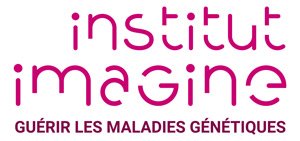Overview
In 2009, the Institut Pasteur, the world leading biomedical research institute founded by Louis Pasteur in 1887, inaugurated the Pasteur Paris-University (PPU) international doctoral program in collaboration with several major Parisian science universities for students holding a Master's degree (or equivalent) in life sciences and/or in medical sciences
Current call
The call for enrollment of students in October 2026 will be open from September 1st to October 20th, 2025

PPU at a glance
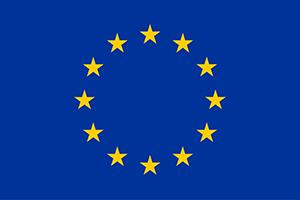
Students conduct their research in one of the 144 laboratories of the Institut Pasteur that offers cutting edge training in a large variety of topics covering Molecular and Cellular Biology, Genetics, Immunology, Microbiology, Genomics, Bioinformatics, Structural Biology, Enzymology and Metabolism, Biological Chemistry, Virology, Parasitology, Medical Mycology, Epidemiology, Infectiology, Imaging, Neurosciences, Developmental Biology and Systems Biology. They have access to a stimulating technological environment to carry out their research project. This includes opportunities to conduct technological and methodological co-developments on high-end equipment under the supervision/in partnership with technology platforms or service and research units (UTechS). In addition, PPU students will receive specific courses on soft skills, as Oral Presentation, Journal Club, Workshop on Ethics, French Lessons. (Educational program)
Students are part of the Pasteurian community with whom they share their passion for science or technology, and their wish to contribute to the prevention and treatment of diseases. Students are immersed in an exciting, dynamic and interactive research environment including access to a large variety of technology platforms with state-of-the art expertise and equipment.
They can extend their knowledge by attending specialized courses and benefit from a vast seminar program attracting major speakers from all over the world. At the end of their studies (typically three years), students defend their PhD according to European guidelines.
The call opens in September and students are selected on a competitive basis. Candidates are first selected by host laboratories, then their applications are presented to a had hoc selection committee by mid-December. Candidates who are short listed by the selection committee are then interviewed early February, with results communicated by mid-February. Selected students are enrolled in the following October for a three-year contract.
Students selected for the PPU program receive a salary from Institut Pasteur including a benefits package (health insurance, unemployment insurance and retirement plan). The program beneficiates from financial support by Institut Pasteur, the European Community, partner institutions, governmental agencies and/or private foundations.
Assistance with administrative issues and with finding accommodation in student residences, including the Cité Internationale Universitaire de Paris, will also be available (Financial support and benefits).
PPU and PPU-Satellite Programs
From September 1st to October 20th, candidates can apply in parallel to up to 4 projects from six PPU programs: the classical PPU, PPU-IMAGINE, PPU-Participatory Science, PPU-OXFORD, PPU-Research & Technology, PPU-Emerging Infection Diseases and PPU-MD-PhD and contact more than one supervisor.
Please note that to carry on with the selection process ("joint application"), in November each year, candidates must choose one single project and program.
The research projects for PPU, PPU-PS, PPU-Oxford and PPU-EID are posted on the application website and share the same selection process organized by Institut Pasteur. You will have to create an account (link to the platform) in order to visualize the projects and to apply.
Please note that no application through email will be accepted.
The PPU-Research & Technology and PPU-MD-PhD projets are available on the same platform (link to the platform). Their selection is organized by Institut Pasteur, but follows specific process.
The selection of the PPU-IMAGINE program is independently organized by Institut Imagine. The application process is managed by the same platform (link to the platform)
PhD students enrolled in the PPU, PPU-PS, PPU-OXFORD, PPU-R&T, PPU-EID and PPU-MD-PhD programs will benefit from Institut Pasteur working contracts (for more details see below “FINANCIAL SUPPORT AND BENEFITS”). The PPU-IMAGINE PhD students will benefit from Institut Imagine working contracts.
 |
 |
 |
|||
| MD-PhD | PS | R&T | EID | IMAGINE | OXFORD |
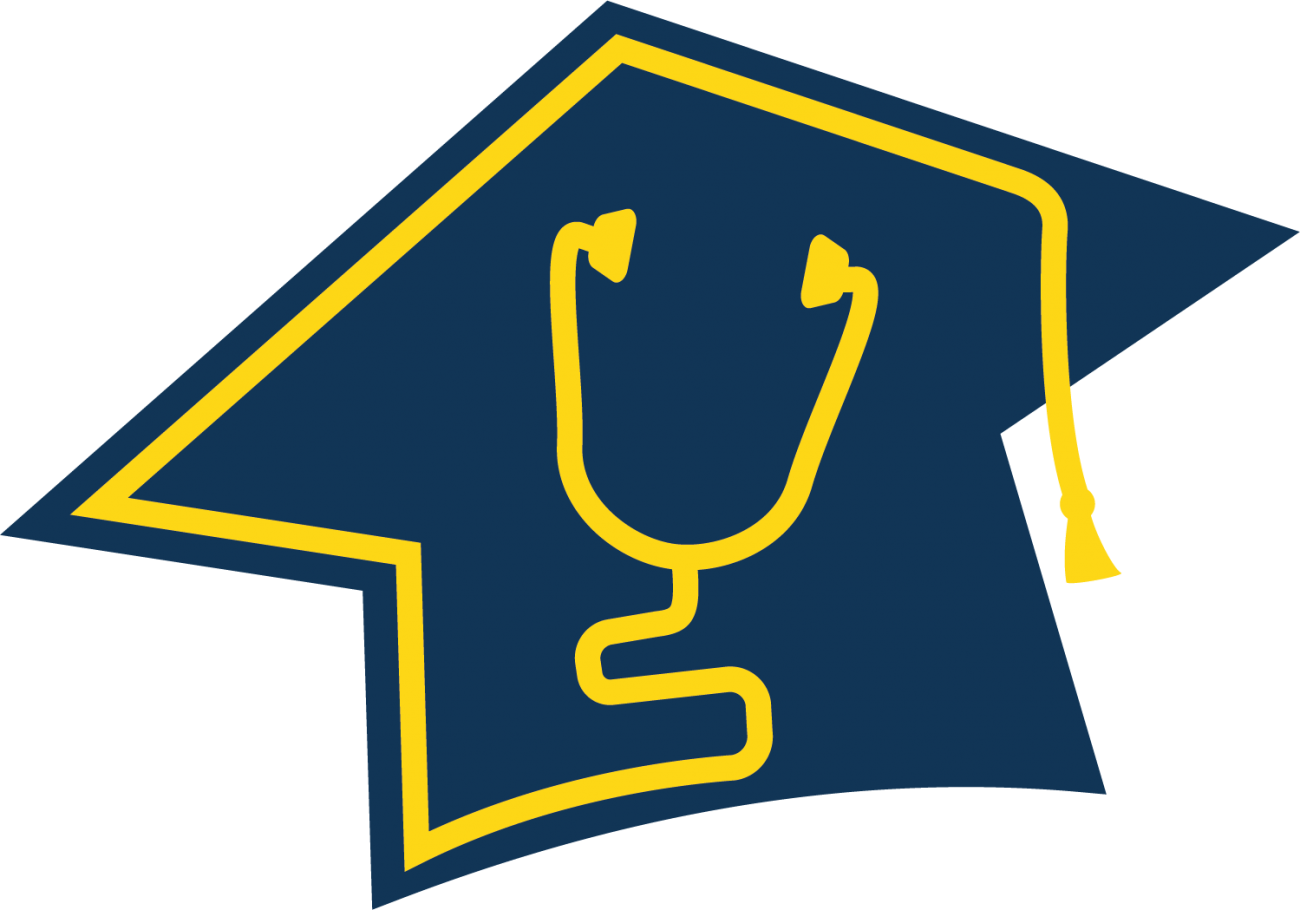
Advances in public health, biological sciences and innovative technologies require medical doctors engaged in scientific and/or technological studies to excel in their field.The main goal of the program is to develop a link between fundamental, clinical and translational research. Additionally, MD-PhD educational paths strongly reinforce connections between scientific and medical institutions.The Institut Pasteur is an ideal scientific institute for medics pursuing a PhD, thanks to its first-class scientific standards, involvement in epidemiology, a strategic plan addressing major health issues, and its strong international connections, notably through the Pasteur Network.
The PPU-MD-PhD program aims to attract both French and international MDs and medical students who wish to integrate a PhD-level training into their curriculum. MD candidates who are already funded and beginning a PhD at the Institut Pasteur may apply to join the PPU program. A personalized curriculum will be offered on public health and health surveillance. Each student will be mentored by both a medical and a scientific tutor. PPU-MD-PhD trainees will also join the community of MDs working at the Institut Pasteur.

Experiential knowledge, patient advocacy and citizen involvement are the key words of this brand new PPU program. A unique opportunity for researchers at our institute to propose innovative, interdisciplinary projects that integrate public participation into several disciplines such as neuroscience, microbiology, and public health. These projects should highlight the importance of public involvement in research, as well as the potential benefits for human health and research methodology.
PPU-RESEARCH & TECHNOLOGY - Spencer Shorte's program
This program will foster scientific projects involving the development of a new technology or methodology to answer a biological question with impact on human health. PhD students will work on collaborative projects between a laboratory and a technology platform or technology service unit (UTechS) and will spend a significant amount of their time in the partner technology platform or UTechS. Students should hold a Master degree or an equivalent university degree in science, medicine or related fields delivered by a university located inside or outside of France, by the time that the students begin the program. Selected students will receive a high level of multidisciplinary training both in biology and technology for life sciences.
PPU-Research & Technology projects are listed within the PPU projects and labelled R&T.
Projects in the area of Emerging Infectious Diseases will help implementing a global vision for a "One Health" approach by preparing the next generation of scientists to major challenges of (re)-emerging infectious diseases (EID). Research-based multidisciplinary projects should aim at developing health, societal, economic and communication aspects in order to prevent and manage EID. PPU-EID students will have access to a wide range of training in the disciplines covered by the new Graduate School 1H-EID. This program is in partnership with 5 Doctoral Schools (BioSPC, MTCI, Pierre Louis de Santé Publique, Science des Sociétés and ABIES). Specific fundings for thesis prolongation, mobility grants and participation to congress will also be available as well as access to international networks such as the Pasteur Network (33 Institutes in 25 countries worldwide) and the research network CAIDERA, partner program of the Graduate School 1H-EID in Germany and Gabon.
Students of the PPU-EID program will work daily in laboratories of Institut Pasteur in 8 of the 12 Institut Pasteur Departments associated with the Graduate School 1H-EID. They will follow all the activities proposed by the PPU program.
PPU-EID projects are listed within the PPU projects and labelled EID.
Institut Imagine is Europe's leading center for research, care and teaching on genetic diseases, and its mission is to understand and cure them. The Institute brings together 1000 of the best doctors, researchers and healthcare personnel in an architecture that creates synergies. It is this unprecedented continuum of expertise, combined with proximity to patients, that allows Imagine to accelerate discoveries and their applications for the benefit of patients.
At Imagine, patients with genetic diseases are at the heart of a virtuous circle. Created by the Institute’s founders, this circle begins with the patient and finishes by curing the patient or at least relieving his/her suffering. Imagine brings together all the skills and expertise necessary to accelerate research, develop innovative care, and to generate synergies and conditions to drive innovation in one building.
Imagine’s goal is to change the lives of families affected by genetic diseases. To achieve this goal, Imagine focuses on four major areas: research, innovative care, education, and promotion.
Through the training of future doctors and researchers and continuous training of doctors and health professionals, Institut Imagine promotes expertise in both research and medicine, which makes it unique.
Students of the PPU-IMAGINE program will work daily in laboratories of Institut Imagine and will participate in PPU activities at Institut Pasteur.
To see and apply to the projects proposed by the IMAGINE doctoral program, please use the link below:
PPU-OXFORD
Projects in the area of Antimicrobial Resistance at the interface with Biochemistry will benefit from a collaboration between the Institut Pasteur and the Chemistry Department of Oxford University and will be part of the « PPU-OXFORD program ».
PPU-OXFORD students will have the possibility to spend up to three months of their PhD in the Chemistry Department of Oxford University. Students of the PPU-OXFORD program will work daily in laboratories of Institut Pasteur, and will follow the activities proposed by the PPU program.
PPU-OXFORD projects are listed within the PPU projects and labelled OXFORD.
Application information
The application call opens in September for the program beginning in October of the following year.
STUDENT ELIGIBILITY
Language: The program is run in English and therefore fluency in English is required (TOEFL or other language proficiency scores are not necessary but may be indicated when submitting your application). No knowledge of French is required, but a basic knowledge may be useful in the daily life outside the Institute.
Age: The PPU doctoral program does not have an age restriction, but most accepted candidates are 24-26 years old and start their Ph.D. within a year of finishing their M.S., a few within 3 years.
External funding: Candidates with external funding are eligible to enter the PPU program if the funding constitutes employment or if the funds can be allocated to the Institut Pasteur to pay the candidate’s salary. Such candidates must go through the same application procedure and be selected by the committee.
DIPLOMA REQUIREMENT AND MOBILITY
PPU-Classic, PPU-OXFORD, PPU-EID, PPU-Imagine
- Master degree or an equivalent university degree in science, medicine or related fields delivered by a university located outside of France, by the time that the students begin the program. (In France, a master degree corresponds to five years of academic education)
- Students holding a B.A. or a B.S. acquired after four years of academic education may be considered if they have additional laboratory experience of at least 6 months, with a written final report or a publication.
- Students who already have begun doctoral training elsewhere and students with a master's degree obtained in France are not eligible for these programs. The candidate's nationality does not affect their eligibility.
- Students should not have resided in France for more than 12 months in the three years immediately prior to the application deadline (October 20, 2025). Compulsory national service and/or short stays such as holidays are not taken into account.
PPU-Research & Technology, PPU-PARTICIPATORY SCIENCE
- These programs are open to any candidate holding a French or International Master’s degree.
- Students holding a B.A. or a B.S. acquired after four years of academic education may be considered if they have additional laboratory experience of at least 6 months, with a written final report or a publication.
- No mobility restrictions are required to apply for this program. The candidate's nationality does not affect their eligibility.
PPU MD-PhD
- Students should be currently enrolled in the cycle 2 or 3, or should have finished cycle 3 of their medical training in France (or the equivalent in other countries)
- No mobility restrictions are required to apply for this program. The candidate's nationality does not affect their eligibility.
THESIS ADVISOR ELIGIBILITY
- To present a candidate to the PPU program, thesis advisors must hold an HDR (Habilitation à Diriger les Recherches) diploma.
- The host laboratory must be affiliated to the Institut Pasteur Paris.
- The research team must be affiliated with a doctoral school of any Parisian university (Université Paris Cité, Sorbonne Université, Université Paris-Saclay,…) and the advisors must not exceed the number of students allowed by their doctoral school.
- If there are multiple scientists holding an HDR in a host laboratory, each one can propose a project and submit an application with a prospective Ph.D. candidate.
APPLICATION PROCEDURE
There are 3 steps in the selection process
1. Candidates choose and are chosen by a host laboratory.
From September 1st, a list of host laboratories and the research projects they propose are posted on the application website after registration: https://ppu.pasteur.fr (a preview is available here).
Applications must be sent through the same link: the candidates can select up to four projects they are interested in, and upload a detailed CV and a motivation letter in PDF format.
Advisors may request additional information from candidates including reference letters and may interview some candidates by visio-conference. Each advisor must eventually choose only one candidate for thier project to present to the Admission Committee.
Candidates may contact potential host laboratories for further information but application must be made through the application website (no email application). Since each advisor must choose only one candidate, candidates may apply to more than one laboratory (maximum four). Advisors are asked to notify candidates who will not be selected as soon as possible. A candidate cannot be selected for more than one project.
The candidate selected for a project will then complete the application on the same platform together with the host laboratory (joint application).
2. Evaluation of joint applications by the Admission Committee.
The joint applications are evaluated in December on the basis of academic qualifications, previous research experience, scientific potential of the candidate and adequation of the candidate with the proposed project. In general, applicants are expected to be among the top of those qualified to enter a Ph.D. program in their home country.
The Admission Committee is composed of members of the PPU Steering Committee (all scientists of the Institut Pasteur), other Institut Pasteur researchers, representatives of the Doctoral Schools (who verify that the applicant is eligible to register for a Ph.D. at a Parisian University) and international senior scientists who are familiar with the applicant’s national education systems.The most promising candidates are selected for an interview.
3. Interview week.
Selected candidates are invited for a four-day visit to the Institut Pasteur during February. Travel expenses (economy fare) and housing during the interview week are paid by the PPU program. During the visit, candidates:
- Visit the host laboratory and meet its members;
- Visit the Institut Pasteur (technical core facilities, museum, scientific library, …);
- Meet the Dean of the PPU program, the Director of Education of the Institut Pasteur, members of the PPU Program Office, current students and other scientists working at the Institut Pasteur;
- Are interviewed by Institut Pasteur scientists who are experts in the candidate’s past and/or future research projects and by a member of the Human Resources Department.
- Present their Master’s degree research (results or in progress) and their Ph.D. project to the Admission Committee which then asks questions;
- Meet at luncheons and dinners with students and scientists.
The Admission Committee examines the general scientific knowledge, the past research accomplishments, the understanding of the proposed Ph.D. project, the motivation of the student, and considers the comments and advice of other interviewers. It then chooses the students to be offered final admission and those to be put on a waiting list. Around 15 openings are available each year. Candidates are informed of the decision shortly after the Interview week; successful candidates are generally given 10 days to notify the PPU of their acceptance. Admission is highly competitive; each year many more qualified candidates apply than can be accepted.
Criteria used by the Admission Committee for the evaluation:
- Presentation: Logical and coherent presentation; appropriate information; clear oral presentation without “reading the slides”; good balance master/future phd projects.
- Addressing the questions: comprehension of the questions, focus on the requested details, scientific knowledge, technical knowledge, ability to think about an open question.
- General attitude: positive attitude, self-confidence, attitude open to discussion.
Exact dates and deadlines for each step are clearly indicated in Current Call.
Educational program
The PPU program prepares students for an exciting and competitive career in scientific research, through the development of a research project, participation to academic courses, and professional development trainings. The requested duration for a PhD in France is three years.
The PPU program has its primary foundations based on scientific research. Students benefit from the highest training in conducting state-of-the-art research by mentorship, active planning and execution, as well as discussion of results with their Ph.D advisors and other leading scientists. A very dense scheduling of lectures and seminars by world renowned scientists, together with congresses and workshops, are also part of the exposure to ideas and data that students will experience on campus.
ACADEMIC TRAINING
Students are responsible for attending a specified number of courses dedicated to fundamental biological concepts and public health. The course syllabus fulfils requirements set forth by the universities, usually equivalent to one to two weeks of courses per year. Multiple theoretical and practical courses are available at Institut Pasteur Education Center, in Parisian universities, and at the Institut Curie. Students have their choice of courses to take, based on their personal backgrounds, interests and topics of research, in accordance with their host laboratory.
Students will also benefit from technical training by members of core facilities. Furthermore, working at the Institut Pasteur provides students with the opportunity to attend some of the many cutting-edge scientific seminars and participate in on-site symposia. Students are also encouraged to apply to international workshops and conferences, for which the PPU program will offer monetary support.
PROFESSIONAL DEVELOPMENT TRAINING
In addition to hands-on laboratory training, the PPU program requires attendance to several professional development training courses to enhance the student skills and complement their academic training:
- French language courses: 3 class levels (basic, intermediate and advanced).
During the I° year: two-hour sessions per week, on campus. - Journal Club: To enhance the educational experience of participants and the assimilation of scientific evidences (learning how to critically evaluate a study, reflecting upon results and draw conclusions, understanding peer review, identifying innovation and advancement, learning how to conceptualize follow-up. (Journal Club)
During the I° year: 1 session per month. - Oral presentation workshop: To teach how to communicate their results and ideas effectively (identifying the key message, planning and preparation, presentation design, confident delivery and stress management, giving/receiving feedback).
During the II° year: four classes lasting 4 hours each. - To learn how to organize a symposium, students of the II° year are in charge of the organization of the annual retreat for all PPU students, under the guidance of the PPU Steering Committee members.
- Other Institut Pasteur trainings: Bioinformatics, Research Sustainability, Artificial Intelligence, Free access to Pasteur MOOCs.
Various other training sessions are available at the Institut Pasteur, the Universities in Paris, and the Institut Curie.
THESIS ADVISORY COMMITTEE
A thesis advisory committee (TAC) follows the student's research progress, offering guidance as needed in addition to that provided by the laboratory in which the student is working.
LUNCHEONS
The PPU program staff is fully committed to building a strong network within each incoming class of students, and between all students in the program as a whole as well as with students and scientists of the campus. For that purpose, several informal meetings are organized to give the students a chance to discuss with the members of the PPU Program Committee and PPU office on individual questions and challenges or unforeseen difficulties encountered.
ANNUAL RETREAT
The students of the 2nd year are responsible for the organization of the PPU annual retreat, in collaboration with members of the graduate office. The retreat lasts three days and takes place at a rotating location outside of Paris (in very nice settings). The Ph.D. advisors and faculty members are invited and students are encouraged to invite a few scientists who are experts on the topic of the chosen theme of the year to present keynote lectures.
One presentation is dedicated to the scientist who gave his/her name to the 1st year class. In addition, all students are expected to present their projects and/or their results, making this retreat a truly interdisciplinary symposium. Furthermore, students discuss their research progress with scientists both from within and outside of the Institut Pasteur. The goal is also to reinforce the networking among students and with other scientists.
CHARTER OF DOCTORAL TRAINING
The rights and responsibilities of students in the Pasteur-Paris University International Doctoral Program are described in the Charter of Doctoral Training, which all students, their advisors and the heads of their laboratories are required to sign before beginning the Ph.D. project. Download here.
WELCOME DAY
A Welcome Day is organized for the incoming Class on their first day on campus. The Dean presents the PPU program, the specific and mandatory trainings, the specific guidance and support provided to the student through the TAC, the social activities and the different offices and the services they provide on campus. The Dean will also answer questions about student life in general.
CALENDAR OF SPECIAL EVENTS

DOCTORAL STUDENT OFFICE
The PPU is part of the Doctoral Student Office.
A dedicated team providing administrative and academic support to PhD students from their arrival to their graduation ceremony, fostering bonds between PPU and non-PPU Ph.D students on campus.
PPU OFFICE
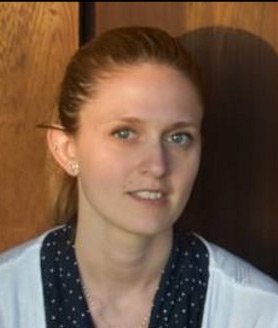 |
Cecilia Patitucci, PhD Dean of the Institut Pasteur- Paris University international doctoral program |
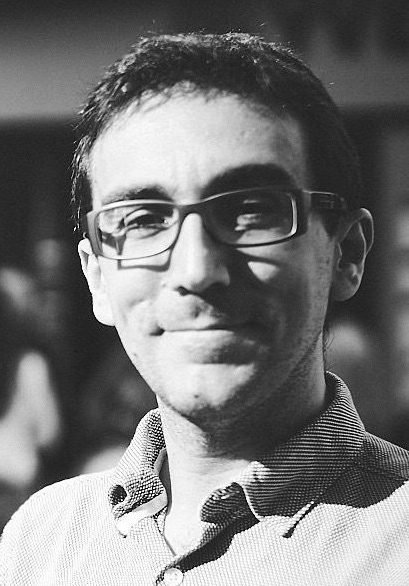 |
Philippe Afonso, PhD Steering committee member |
 |
Zeynep Baharoglu, PhD Steering committee member |
 |
Nadia Benaroudj, PhD Steering committee member |
 |
Célia Caillet-Saguy, PhD Steering committee member |
 |
Germano Cecere, PhD Steering committee member |
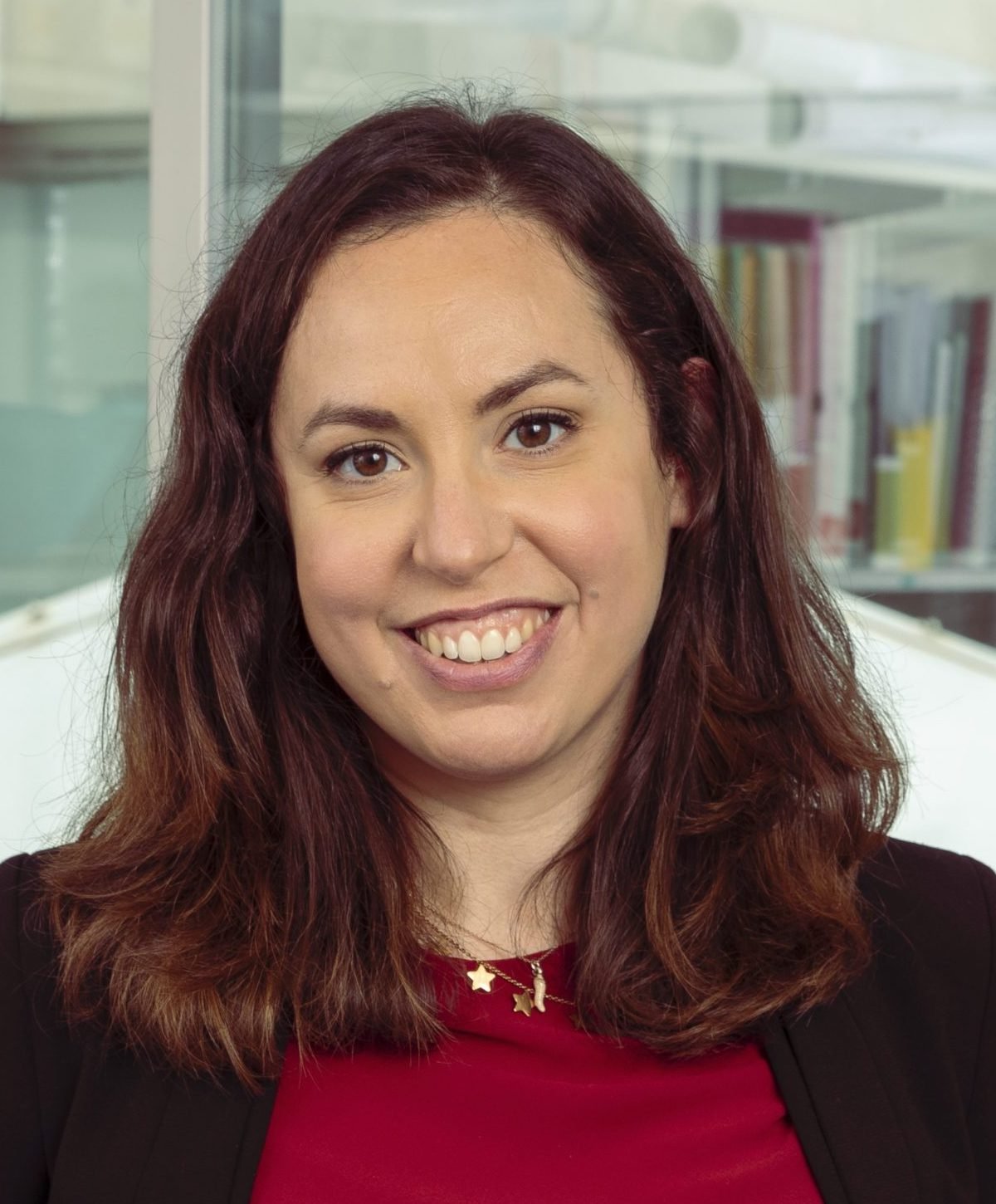 |
Laura Cantini, PhD Steering committee member |
 |
Aziz El Amraoui, PhD Steering committee member |
 |
Marcel Hollenstein, PhD Steering committee member |
 |
Annette Martin, PhD Steering committee member |
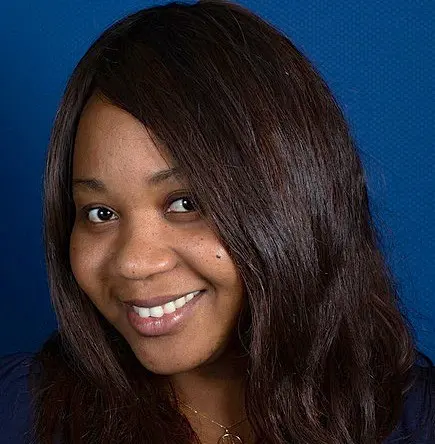 |
Mariette Matondo, PhD Steering committee member |
Financial support and benefits
Students will be employees of the Institut Pasteur with a three-year working contract.
The students will receive:
1) a monthly salary of 2.000€ comprehensive of social benefits (national health care, health insurance, etc.);
2) a “welcome bonus” of 4.000€ gross which will be paid at once with their first salary;
3) the reimbursement of one round-trip ticket per year (train or plane tickets in eco-class, up to 1.300€ for non-continental europan countries, up to 350€ for continental european countries) for the country of origin, for the duration of the program, to be taken during the academic year (with no possibility of postponement or refund if not taken).
There is no financial support for family members.
The PPU program offers:
- Assistance in accomodation for the first year. See Housing
- 750€ per year per student to cover expenses related to attending international conferences or summer courses.
- One-to-one meetings with the Dean of the PPU are regularly offered to discuss students' scientific education, provide assistance with practical matters, and ensure overall student well-being
- Help in administrative issues, individualized or grouped professional training classes, and counseling by the Human Resources Department.
- Access to all amenities at Institut Pasteur and the universities for reduced fees, including:
- Subsidized access to the cafeteria for lunch;
- Conferences on the campus;
- Sports within ASIP (Sport Association of Institut Pasteur);
- Discounts on travels;
- Rebates on cultural events, cinema and theater tickets and more from the "Conseil Social et Economique (CSE)" (Institut Pasteur employee benefits committee);
- Free WiFi on the campus. Students must abide by the institut’s rules concerning internet access and use;
Free access to a state-of-the-art Center for Scientific Information (CeRIS) with hundreds of scientific journals, the most extensive resources for microbiology, immunology and molecular biology in France and the unique World Health Organization publication repository in the country.
Please note that only students residing in Paris will benefit from complete handling of administrative issues by the Institut Pasteur.
For information:
- Financial support for the fellowships and the educational training comes from the Institut Pasteur and the European Community. In addition, the program benefits from support by other Institutions, including partner institutions of the Institut Pasteur, some governmental agencies and private foundations. (fellowships)
-
Starting January 2019, France adopted the pay-as-you-earn withholding tax system, meaning taxes are directly deducted from your salary. Tax information sessions are organized to explain students how to declare taxes in France.
See Previous and current students
FAQ
Application (Student)
What is the application process?
The application process consists of three steps: (i) the candidate must select and be selected by a host laboratory, keeping in mind that each advisor can present only one candidate. ; (ii) applications are filled out jointly by the candidate together with the host laboratory ("joint application") and are uploaded in the PPU dedicated platform (link available in the Current call section at the opening of the call). Applications are evaluated by an Admission committee that selects candidates for an interview at the Institut Pasteur; (iii) these candidates are invited for a four-day interview on the Institut Pasteur campus (or in a visio-conference format during the sanitary crisis) and present their past and future works to the Admission committee (see details in application information).
When does the application process begin?
The application period starts in mid-September. Prospective students are free to contact the lab (s) they are interested in at any time during application period.
When is the application deadline?
The deadline for joint application is usually in November. The exact dates and deadlines for each application period will be indicated on the current call page when a call is opened. Candidates are strongly encouraged to contact host laboratories as early as possible and well before the application deadline.
What is the first step in the application process?
The first step is to identify and contact a host lab in which you would be interested in doing your Ph.D. research. Projects and contact information for laboratories recruiting prospective Ph.D. students at the Institut Pasteur are posted on the PPU dedicated platform (link available in the Current call section at the opening of the call). Further information about laboratories and their research interests is available on the website RESEARCH. Because laboratories receive many applications and can present only one candidate, the first step of the selection process is to be chosen by a host laboratory. Please keep in mind that a candidate can only choose up to 4 host labs to apply to.
May I contact a lab that is not listed on the page of the current call?
You are free to contact any lab of your choice at the Institut Pasteur in Paris. The list of all laboratories at Institut Pasteur can be found on the Institut Pasteur website. However, the laboratories not listed on the current call page are are not proposing a project for the PPU Program, and may not search for a student in the upcoming academic period.
May I contact several host laboratories?
Yes. You may contact as many host laboratories as you wish, but you may apply only to a maximum of 4. However, if you are selected by more than one host lab for application to this program, you will be required to choose only one.
Does my host laboratory have to be located at the Institut Pasteur in Paris?
In the majority of cases yes, only few host laboratories are located at walking distance from the Institut Pasteur (Institut de l'Audition, IDA)
What are the degree prerequisites for consideration of acceptance in the Pasteur - Paris University International Ph.D. program?
A Masters of Science (M.Sc.), or an equivalent degree that would formally qualify you to register for a Ph.D. program in the French University system, is required to be considered for acceptance into this program. In some cases, students who have carried out an undergraduate research project in addition to their B.A. or B.Sc. degree may qualify. The host lab can inquire into this with its affiliated doctoral school.
By what date must I have finished my M.Sc. or equivalent degree in order to enroll in the PhD program?
You do not need to have finished your M.Sc. or equivalent degree prior to the application deadline. The degree must be completed by the summer of the following year, in order to register at the Paris Universities. A copy of the diploma or a certified written attestation of completion must be available before the start of the program (October).
Is there an age limit or a time limit between the date of my Master’s degree and filing the application?
The PPU doctoral program does not have an age restriction, but most accepted candidates are 24-26 years old and start their Ph.D. within a year of finishing their M.S., a few within 3 years.
Do I need to apply directly to the University?
No, you do not. Your application must be uploaded in the PPU dedicated platform. If you are accepted into the program, you will receive information on when and how to register with the university/doctorla school to which your host laboratory is affiliated.
Are there country-specific requirements for international applicants?
No.
What are the language requirements?
The program is run in English and therefore fluency in English is required. TOEFL or other language proficiency scores may be indicated when submitting your application. No knowledge of French is necessary. French language classes will be part of the Ph.D. program curriculum.
Are specific standardized test scores required and where should they be sent?
No. Graduate Record Exam (GRE) scores are welcome but not required.
If I have done my university studies outside of France, but will earn my Master’s degree from a French institution, am I eligible to apply?
No. A master degree (or equivalent) delivered by a university located outside of France is required. A double Master degree is acceptable only if a French and non-French institutions are delivering each a Master degree.
I already have been granted a Ph.D. fellowship. Does this guarantee a place in the program?
No. All applicants are evaluated by the Admission Committee solely on the basis of their qualifications and scientific potential. All applicants must successfully pass the application and interview procedures in order to be eligible. Moreover, under French law, the external funding must constitute employment or the funds must be allocated to the Institut Pasteur to pay the candidate’s salary.
How and when will I receive notification regarding interviews?
The selection for the interview is highly competitive. The candidates selected for an interview will be notified by email toward the end of December or beginning of January.
How and when will I receive notification regarding acceptance to the Ph.D. program?
The candidates selected for the program will be notified by email shortly after the interviews, generally within 1 week.
Where do I send application materials?
Candidates do not send applications themselves. Joint application (candidate/host lab) must be uploaded on the PPU dedicated platform
Is it possible to check the status of my application once it is filed?
No.
Is there an application fee?
No.
Application (Host laboratory)
Can the host laboratory present a candidate without having posted a research project on the current call page?
No, all laboratories searching for a Ph.D. student for the PPU program must upload a project on the dedicated platform. Teams that have already chosen a candidate must still upload a project and contact phd@pasteur.fr
Can a host Laboratory present multiple candidates?
To present a candidate to the PPU program, thesis advisors must hold an HDR (Habilitation à Diriger les Recherches) diploma. If there are multiple scientists holding an HDR in a host laboratory, each one can propose one project and submit one application with one prospective Ph.D. candidate (joint application).
With which universities must the research group be affiliated?
To participate in the Pasteur - Paris University International Doctoral program, a host laboratory must be affiliated with a Doctoral School of one of the three partner Universities of the program: Université de Paris, Sorbonne Université, and Université Paris Saclay.
Can an advisor that already has a Ph.D. student in the program present another candidate for the following application period?
No advisor may have more than one Ph.D. student within the program.
What information should be contained in the host laboratory introduction letter?
The host laboratory must certify that it is willing to host and supervise the prospective Ph.D. candidate if he/she is accepted into the program. The host laboratory should explicit why it proposes the candidate for its laboratory and for the PPU program.
Interview
Following the interview, when will I be notified of acceptance into the Ph.D. program?
The candidates selected for the program and their host labs will be notified by email shortly after the interviews, generally within 1 week.
How long is the interview stay in Paris?
Four days. The exact dates are indicated on the Current Call Page. During the sanitary crisis, the interview week is done through visio-conference for 4 days, in the same format as the one on site (see below).
What is involved in the interview week process?
During your stay you will visit your host laboratory to meet and discuss the research project with the prospective advisor and laboratory members. Individual interviews will be performed by Faculty members to assess each candidate’s qualifications for the PPU program. You will tour the Institut Pasteur and its core facilities, and meet with current PPU students and the PPU program staff. To see what scientific life is like at the Institut Pasteur, meetings are also planned with scientists and other Ph.D. students at meals and in informal social events. You will be interviewed by the Admission Committee, during which time you will present your Master’s degree research (results or in progress) and planned Ph.D. project.
Will travel and accommodation expenses for participating in the interview week be covered by the PPU Program?
Yes.
University - Doctoral School
What is the connection between the Institut Pasteur and the universities of Paris?
The Institut Pasteur is a non-profit research foundation that has maintained a long tradition in teaching. Several major science courses organized at the Institut Pasteur are integrated into the master degrees of several Parisian universities. For the PPU program, the Institut Pasteur has developed a special partnership with Université de Paris, Sorbonne Université, and Université Paris Saclay. This partnership means that students are employed by the Institut Pasteur and registered at a Parisian university. Students enrolled in the PPU program perform their research project on the campus of the Institut Pasteur. The universities will deliver the diploma, on which will be indicated the co-operative nature of this program through the title “Pasteur - Paris University International Doctoral Program.
At which Parisian university will I register?
Your laboratory must be affiliated with a doctoral school of one of the three partner universities. You will be registered at the same doctoral school and university as your research team.
What is a doctoral school?
A doctoral school is an association of research teams preparing Ph.D. students to a career in research through an educational program for the research profession. Each French university has several doctoral schools which are specialized in specific scientific domains. To be enrolled in a Ph.D. program, the student registers at a doctoral school.
Will the courses differ depending on my university affiliation?
Completion of a Ph.D. at a French university requires participation in several scientific courses and professional trainings. All students enrolled in the PPU program will participate in a similar number of courses and training hours, regardless of the university affiliation. To fulfill this requirement, students will be able to choose among a number of courses that are the most appropriate and interesting for their individual training, including the ones that are required by the doctoral school.
Who will deliver the Ph.D. diploma?
The university will deliver the diploma, which will indicate the co-operative nature of this program through the title “Pasteur - Paris University International Doctoral Program”.
Ph.D. Program
What will be the approximate starting date for each new academic year?
The program starts the first week of October. Arriving in Paris between September 15 and October 1 will help to familiarize yourself with the city, the housing and the university, as well as to prepare all the necessary paperwork. The exact arrival date may vary from student to student and will depend on the status of his/her visa application (if you are not from the European Community).
What is the expected duration of the program, from beginning to the defense of the Ph.D.?
Students are expected to finish their Ph.D. in three years. Sometimes extensions may be granted when required and justified and are subject to approval from the doctoral school. Extensions will only be given by universities if external funding is available. The PPU program only provides funding for three years.
Can you summarize the practical and academic offerings of this Ph.D. program?
The program aims to meet the highest standards for education and training of Ph.D. students in the world. While spending most of the time working in individual research projects in a laboratory at Institut Pasteur, students benefit from excellent scientific courses and professional development trainings. The students will also be able to attend exciting seminars and participate in interactive workshops, annual retreats and journal clubs. The students within this program will be well supported by the staff, acting as advocates for the students’ scientific education and to provide assistance in any practical matters. A thesis advisory committee (TAC) will follow the students’ research progress and will offer guidance as needed in addition to that provided by the laboratory in which the student is working. The program offers a salary covering living costs and including health insurance. The program also offers assistance in obtaining housing upon arrival in France. Financial support for attending international conferences or summer courses will also be provided.
Does the Ph.D. program also include a Master’s program?
No.
Who do I contact if I have further questions?
If you have further questions, do not hesitate to contact phd@pasteur.fr
Life in Paris
Is housing provided?
Upon your arrival in Paris, you will be able to stay in Institut Pasteur reserved housing at the Cité Internationale Universitaire de Paris (CIUP) for 6 months (up to 12 months during the sanitary crisis). The rent is paid by the student. This is a beneficial time to look for housing. The real estate market is tight and students are encouraged to actively seek housing rental opportunities. They can apply independently to continue living at the Cité Internationale Universitaire de Paris (CIUP) and to the international houses of their respective countries as well. (Housing)
Is there additional financial support given for family and/or spouses?
No.
Will I receive help with my Visa application and other paperwork?
Yes. The PPU, the Graduate as well as the Human Resources offices of the Institut Pasteur will provide assistance. A Hosting Agreement ("Protocol d'accueil") for visa application will be sent to students selected to enter the program from outside of the European Community. Precise instructions will be sent to all students accepted into the program about the paperwork that they need to complete and the steps they need to follow. The instructions must be followed carefully.
Does Institut Pasteur provide funds for travel and moving expenses when arriving in Paris?
No. However, a 4000€ one-time bonus is added to the first paycheck.
Is healthcare included in the salary?
Where can I find more info on healthcare?
Partners
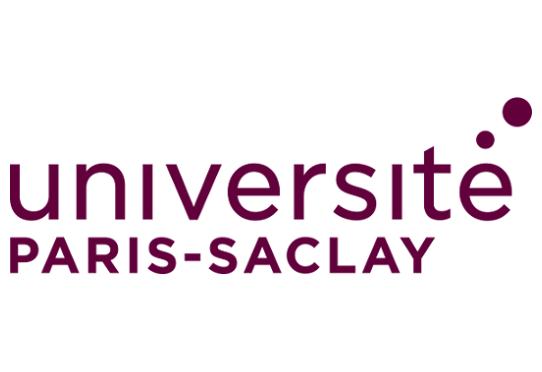 |
 |
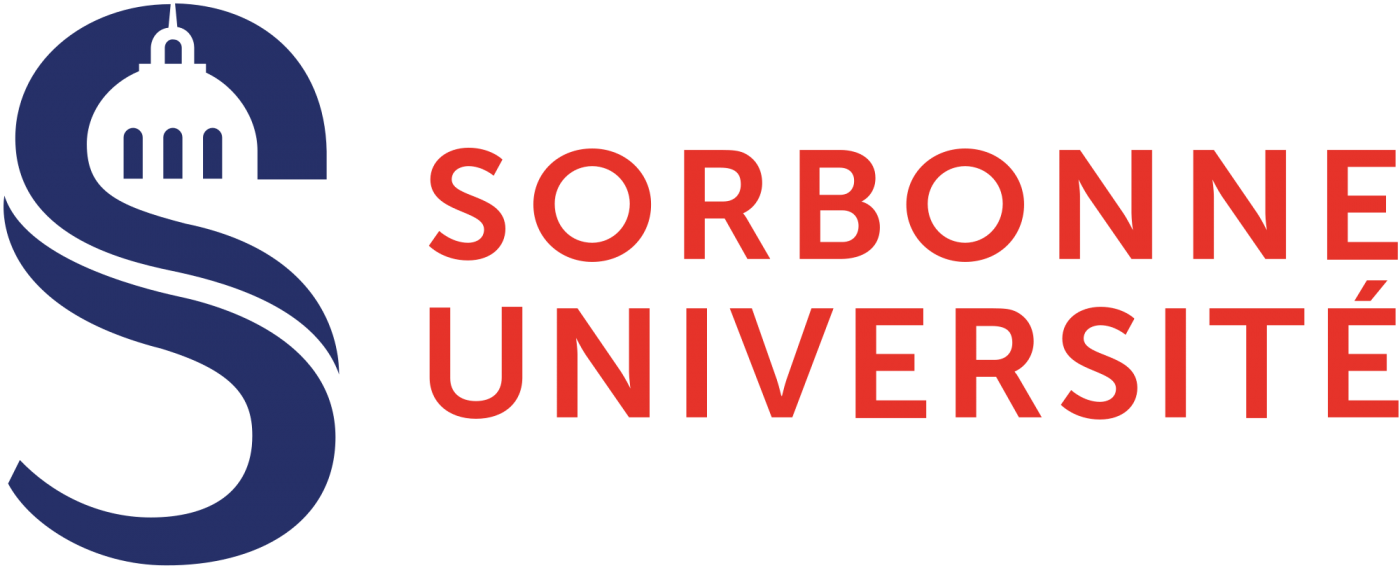 |



